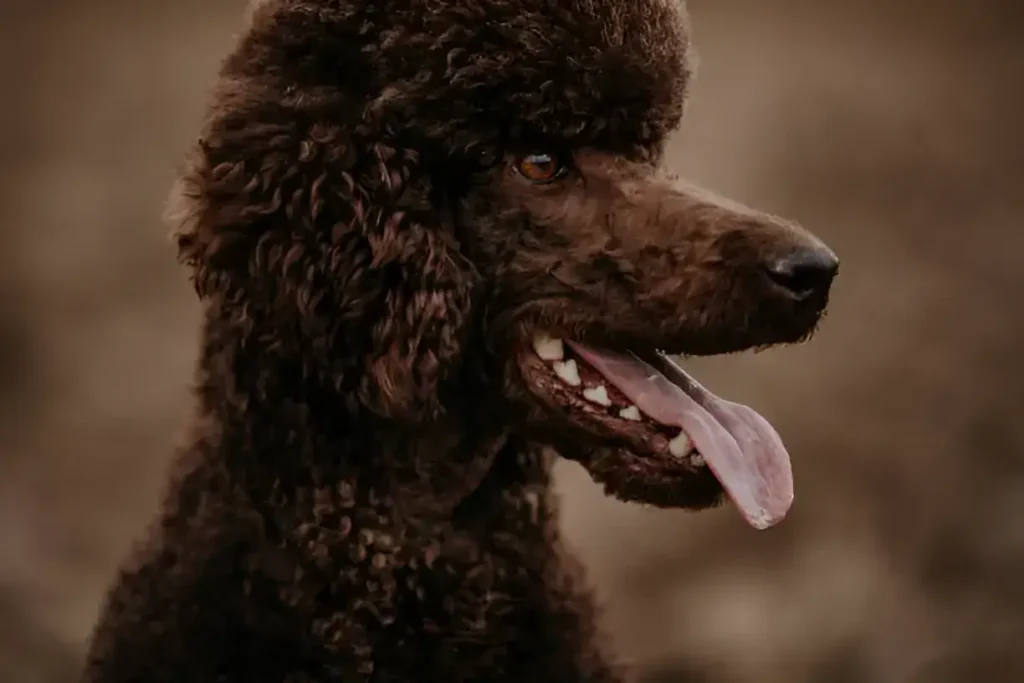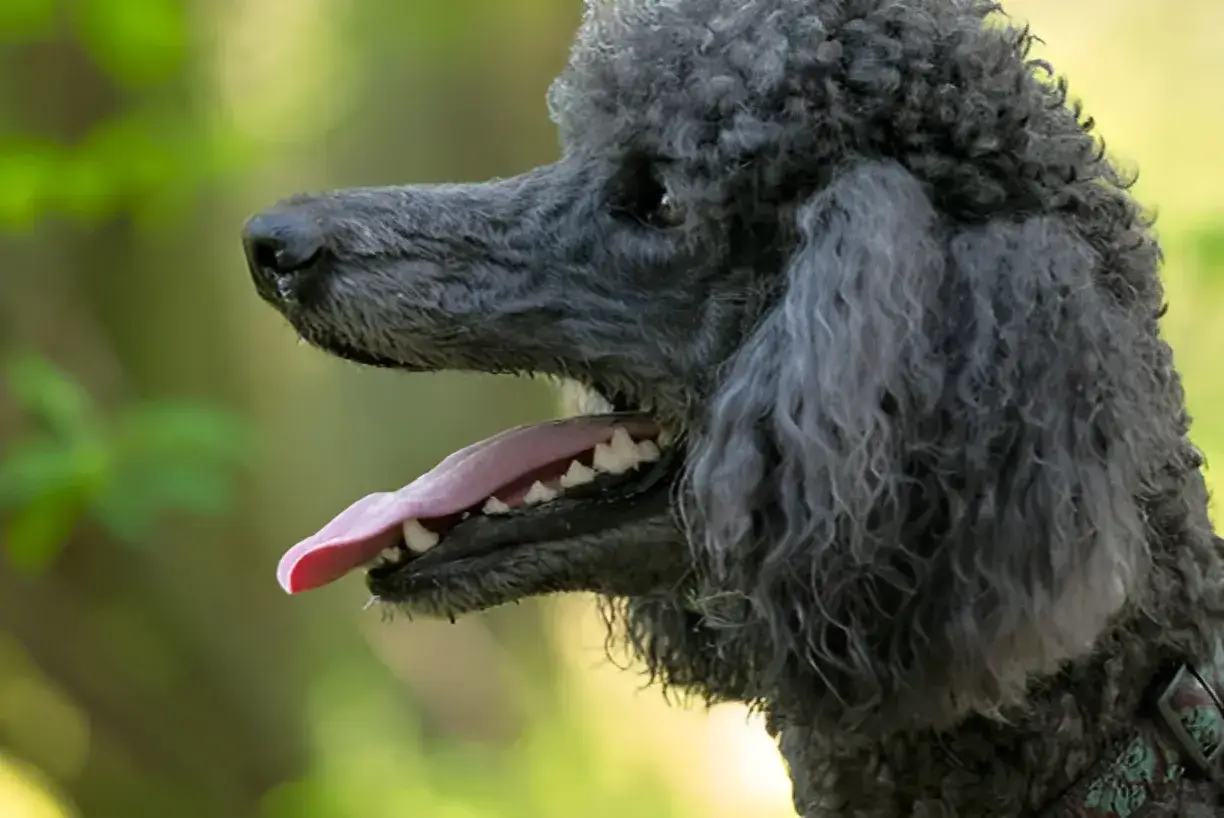Poodles, while beloved for their intelligence and characteristic appearance, possess the capability to bite like any other breed. The strength of a poodle’s bite is primarily determined by its size variation.
The Influence of Size: Bite Force Across Poodle Types
- Standard Poodle: As the largest Poodle, Standards naturally have the most powerful bite. Their bite force usually measures between 200-250 PSI, which can be quite painful and may lead to puncture wounds.
- Miniature Poodle: These mid-sized poodles have less powerful bites than their larger counterparts, typically ranging from 150-200 PSI. Their bites may still cause discomfort and potentially break the skin but are less likely to cause serious injury.
- Toy Poodle: These tiny companions have the weakest bite force of all poodle varieties, usually under 150 PSI. While a Toy Poodle’s bite can still hurt, the risk of significant damage is considerably lower.
Contextualizing Bite Force: Poodles in Comparison
To better understand the potential impact of a poodle’s bite, let’s consider them alongside other breeds and a familiar reference point:
- Human Bite: The average human bite exerts approximately 120-160 PSI, demonstrating that even a Standard Poodle possesses a significantly stronger bite.
- Labrador Retriever: These popular family dogs have a bite force around 230 PSI, comparable to a Standard Poodle.
- German Shepherd: Known for their protective roles, German Shepherds have a bite force that can exceed 238 PSI.
- Mastiff Breeds: Certain mastiff breeds possess remarkably powerful bites, with some exceeding 550 PSI, emphasizing the wide range of bite strength across dog breeds.
- Chihuahua: These tiny companions possess a surprising bite force for their size, estimated between 100-180 PSI. While less powerful than a Poodle’s, their bite can still be painful, especially due to their sharp teeth.
- Pit Bull Terrier: Pit Bulls have a bite force around 235 PSI, similar to some larger dog breeds. comparable to a Standard Poodle.
Dog Bite Force Comparison Chart
| Dog Breed | Size Category | Estimated Bite Force (PSI) |
|---|---|---|
| Standard Poodle | Large | 200-250 |
| Miniature Poodle | Medium | 150-200 |
| Toy Poodle | Small | <150 |
| Labrador Retriever | Large | 230 |
| German Shepherd | Large | 238+ |
| Pit Bull Terrier | Medium/Large | 235 |
| Chihuahua | Small | 100-180 |
| Kangal | Large/Giant | 743 |
| Mastiff (Various Breeds) | Giant | 550+ |
Factors Beyond PSI: Influences on Poodle Biting Behavior

While bite force is an important consideration, it’s crucial to recognize the multifaceted reasons behind potential biting behavior:
- Training and Socialization: Poodles of all sizes benefit immensely from early and consistent socialization, along with positive reinforcement training. This teaches them bite inhibition and appropriate interactions with humans and other animals.
- Individual Temperament: Some poodles may possess inherently more anxious or reactive tendencies compared to others. Understanding your dog’s unique personality is essential for effective management.
- Situational Factors: Pain, fear, or feeling threatened can lead even a well-trained poodle to bite as a defensive reaction. Proactive owners work to minimize potential stressors for their dogs.
- Resource Guarding: In some cases, poodles may display guarding behaviors around valued resources like food, toys, or favored resting areas.
Bite Prevention: Promoting Responsible Poodle Ownership
Taking steps to prevent bites is a cornerstone of responsible ownership:
- Professional Guidance: Seeking the expertise of a certified dog trainer or behaviorist can provide tailored training strategies and address potential behavioral concerns.
- Supervised Interactions: It is important to actively supervise children around any dog, teaching them respectful interactions and how to interpret canine body language.
- Environmental Management: Learning to identify your poodle’s triggers and proactively managing their environment can reduce situations that might lead to defensive biting.
Conclusion
Understanding bite force dynamics is an aspect of responsible poodle ownership. Prioritizing training, respecting your dog’s boundaries, and implementing proactive management strategies create a safe and harmonious environment for both your poodle and those around them.
The photo featured below the post headline is Credit: Gord Rufh/Gettyimages
I hope you find this post helpful and informative. If Yes’ feel free to share it with your friends!
Frequently Asked Question
Does my poodle’s bite force necessitate specialized training?
All dogs benefit from basic training that includes bite inhibition and impulse control. Consult a professional for breed-specific guidance if needed.
Should I be less concerned about bites from my smaller poodle?
Regardless of size, all dogs can inflict painful bites. Consistent training and proper socialization are essential for poodles of all varieties.
Are poodle bites dangerous?
While the severity can vary depending on poodle size and the circumstances, any dog bite has the potential to cause pain and injury. Proper training and socialization are crucial for minimizing the risk of bites.
Does my poodle need bite training?
All dogs benefit from basic training that includes bite inhibition, where they learn to control the pressure of their bite. This is essential for building a safe and trusting relationship with your poodle.
Which dog has the strongest bite force?
Kangal dogs hold the record for the strongest bite force, measuring around 743 PSI. Mastiff breeds are also known for their exceptionally powerful bites.
Do poodles become aggressive?
Poodles are not inherently aggressive. However, like any dog breed, lack of socialization, poor training, anxiety or fear, or pain can lead to aggressive behaviors.
Will a Poodle defend you?
While not typically associated with guarding roles, some poodles may exhibit protective behaviors toward their family. Proper training and understanding your individual dog’s personality are important.
Should I be less concerned about bites from my smaller poodle?
Regardless of size, all dogs can inflict painful bites. Consistent training and proper socialization are essential for poodles of all varieties.

